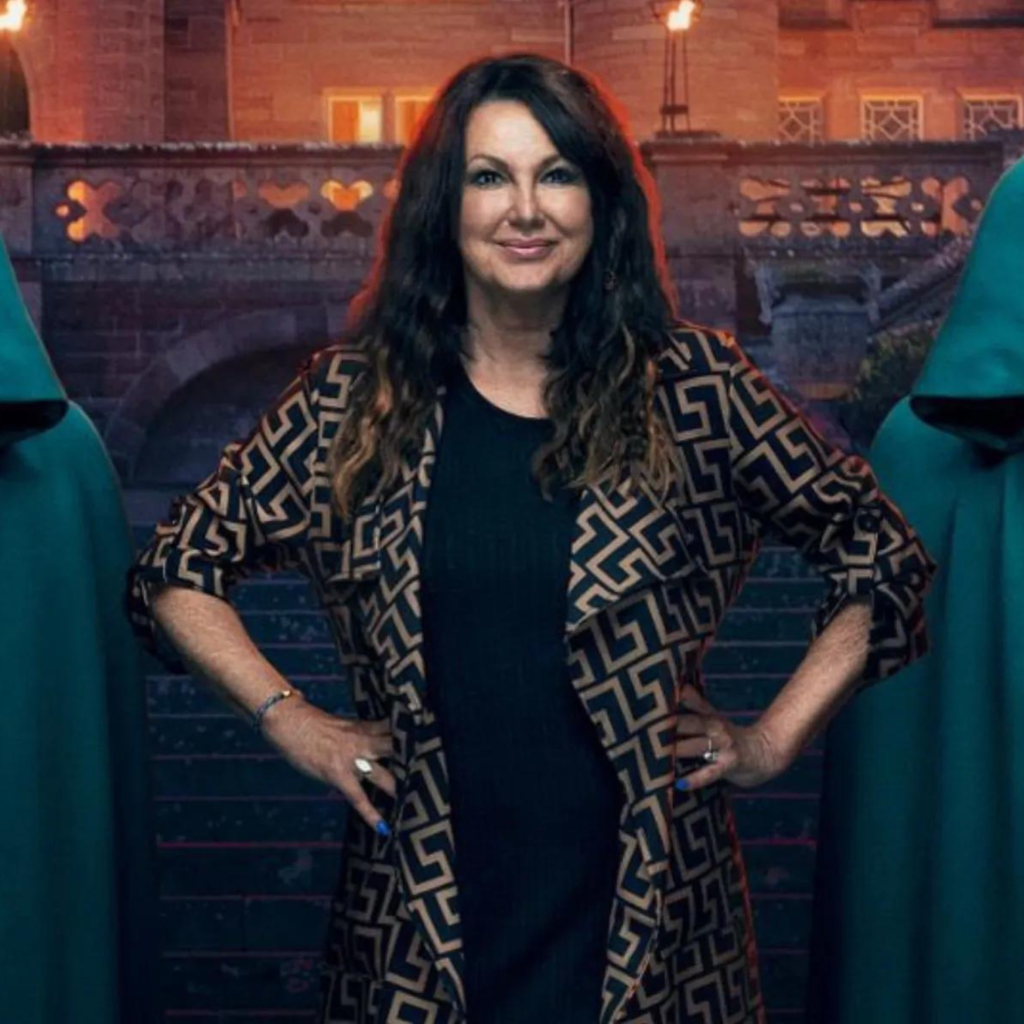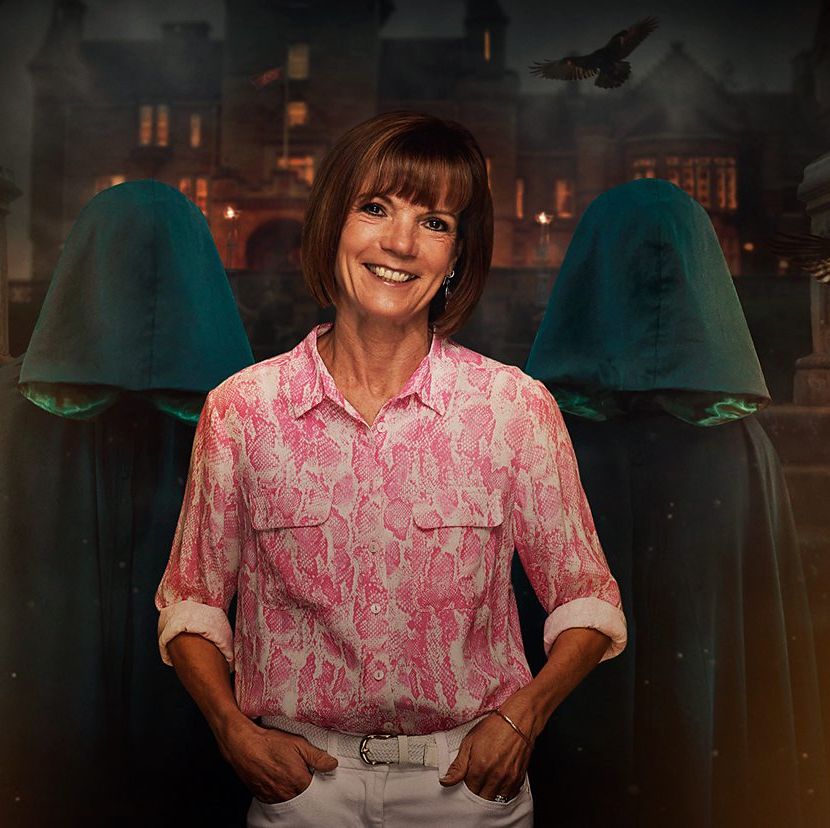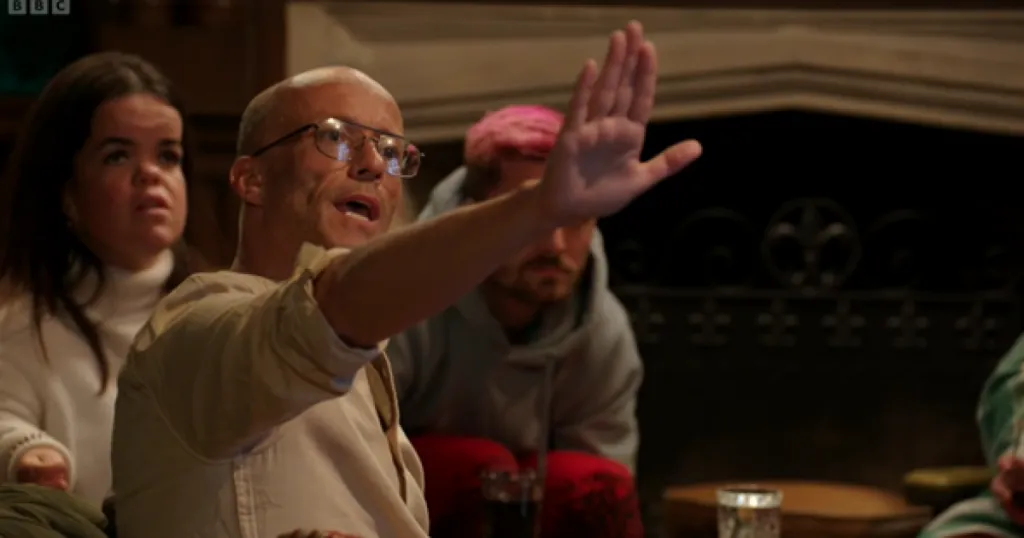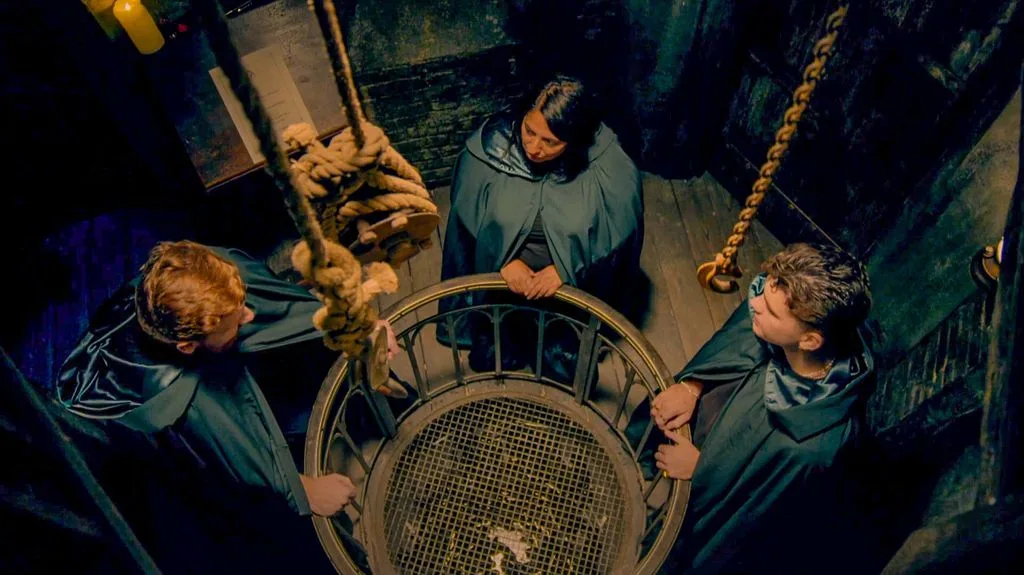The Traitors has become an enormous hit for the BBC, with series 2 of the reality competition show reaching the heights of 7 million viewers tuning in for the final. But what makes this show such a hit and especially with a large LGBTQ+ audience? Well, I think I may have the answer for that, or at least some of the answer.
Not only is the show a camp romp of murder, lies, and betrayal with contestants that you can root for, I’m looking at you Amanda (Series 1 Mother) and you Diane. (Series 2 Mother) but the game also shows what it is like to hide in plain sight, lie about who you truly are and how little it can take for you to be caught and outed in front of a group of strangers.


The entire concept of The Traitors is a show about hiding and fitting into the perspective norm of life. Contestants vote to banish other members for as little as holding a glass of water differently, or giving an innocent look at another round the table. Just one word out of the norm can be enough to see you sent packing. Not once, but twice, we have seen contestants blame a panic attack or an emotional reaction to questions as evidence they are lying and need to leave the show. The rules of this game mean to sail through to the final you must fit into the role of ‘normal’ as much as you can at any cost.


The traitors themselves are on the other side of the game. These players have to hide their true selves, meeting after dark in secret to converse and trick all the other players into thinking they are just like them, faithful. This feeling of hiding, lying to people about who you are is an authentic experience for many LGBTQ+ people in the real world. That feeling of always being on the edge of being caught out by something you say or do is the same experience we see when a traitor is outed to the round table, and those feeling are ones nearly all LGBTQ+ people face in their lives.
Not only at work, or in social settings, but going all the way back to school. That feeling of hiding is always present, and getting through the game as a traitor is something that LGBTQ+ audience can relate to. Watching someone else play these emotions for a game allows you to sit back and cheer them on, knowing the feeling exactly.

I wonder if this is one reason the show, and many other similar shows resonate so much with the audience. When you are not ‘out’ those fears and worries are there with you every day. Being able to watch The Traitors and see these fears played out in a game with no true life consequences is not only thrilling but it also allows an insight for the viewers at home watching to know what keeping such a secret can feel like when you don’t fit into the social norm.
If you are a fan of The Traitors and need more, I host a podcast called Faithful to The Traitors with Alex where we cover every English speaking series. You can find us to watch here: https://www.youtube.com/channel/UCUR7_YxWr25jKZK-DBZpZlA or you can listen on any podcast app.


